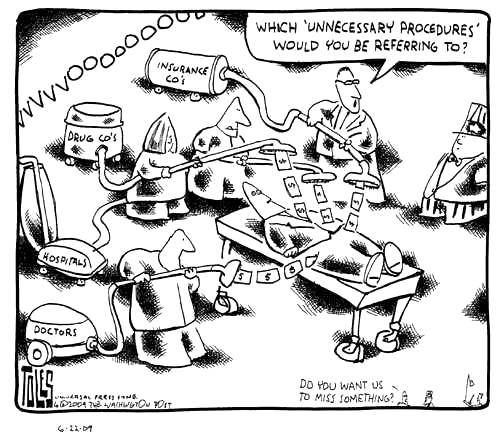MaggieMae
Reality bits
- Apr 3, 2009
- 24,043
- 1,635
- 48
- Thread starter
- #61
What a wingnut source that is. This is a paragraph from the article:Canucks come to America for health care
Filed under: Canucks, economic ignorance, socialism crushliberalism @ 10:20 am
Just how good is that Canadian universal health care? Its so good that Canadians are coming here for private health care. From Buffalo News:
Canucks come to America for health care « Crush Liberalism
Let that sink in, folks. It is a crime for people in Canada for people to spend their own money (a) in any manner they see fit and (b) on their own health! And Edwards, Obama, Shrillary, et al on the left want that to come here? I dont think so! Continuing:
Does seem like a strange source.
But are you saying that politicians wouldn't want this kind of care?
You don't think that the elites would be exposed to the same kind of nationalized care as the rest of us, do you?
From 'Animal Farm,' some animals are more equal than others.
Hmmm, maybe you're starting to *get it* after all. Of course people who can afford luxury treatment paid by all-inclusive insurance policies would turn their noses up at anything less for themselves. They also realize, however, that a few crumbs of coverage should be thrown to the serfs too.
I wonder how much over the years it has cost the taxpayers to provide all members of Congress with excellent health coverage factoring in the average number who have never had a reasonably large claim but WE paid for it nonetheless?

